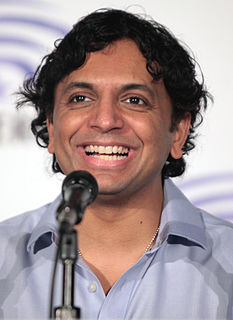A Quote by Bill McKibben
The real tight interface is between the book and the reader-the world of the book is plugged right into your brain, never mind the [virtual reality] bodysuit.
Related Quotes
In my couple of books, including Going Clear, the book about Scientology, I thought it seemed appropriate at the end of the book to help the reader frame things. Because we've gone through the history, and there's likely conflictual feelings in the reader's mind. The reader may not agree with me, but I don't try to influence the reader's judgment. I know everybody who picks this book up already has a decided opinion. But my goal is to open the reader's mind a little bit to alternative narratives.
If you're having a very high-adrenaline, high-movement experience in virtual reality, and then all of a sudden you're back in your office, that disconnect is pretty notable. Whereas if you're using it for virtual reality teleconferencing... there's really no kind of impact moving back and forth between the real and the virtual world.
Every reader, as he reads, is actually the reader of himself. The writer's work is only a kind of optical instrument he provides the reader so he can discern what he might never have seen in himself without this book. The reader's recognition in himself of what the book says is the proof of the book's truth.
Watching a scene from a film in slow motion is possible, but there’s an unreal air to it; reading a passage from a book slowly does nothing to rob the words of their power. A film presents images; a book creates images inside the reader, with the reader’s active participation. Books are good for your brain.
You have to seduce the reader, manipulate their mind and heart, listen to the music of language. I sometimes think of prose as music, in terms of its rhythms and dynamics, the way you compress and expand the attention of a reader over a sentence, the way the tempo pushes you towards an image or sensation. We want an intense experience, so that we can forget ourselves when we enter the world of the book. When you are reading, the physical object of the book should disappear from your hands.
A book no more contains reality than a clock contains time. A book may measure so-called reality as a clock measures so-called time; a book may create an illusion of reality as a clock creates an illusion of time; a book may be real, just as a clock is real (both more real, perhaps, than those ideas to which they allude); but let's not kid ourselves - all a clock contains is wheels and springs and all a book contains is sentences.
What's your favorite book?' is a question that is usually only asked by children and banking identity-verification services--and favorite isn't, anyway, the right word to describe the relationship a reader has with a particularly cherished book. Most serious readers can point to one book that has a place in their life like the one that 'Middlemarch' has in mine.
Write what you want to read. So many people think they need to write a particular kind of book, or imitate a successful style, in order to be published. I've known people who felt they had to model their book on existing blockbusters, or write in a genre that's supposed to be "hot right now" in order to get agents and publishers interested. But if you're writing in a genre you don't like, or modeling yourself on a book you don't respect, it'll show through. You're your first, most important reader, so write the book that reader really wants to read.
The object we call a book is not the real book, but its potential, like a musical score or seed. It exists fully only in the act of being read; and its real home is inside the head of the reader, where the symphony resounds, the seed germinates. A book is a heart that only beats in the chest of another.
A book is one of the most patient of all man's inventions. Centuries mean nothing to a well-made book. It awaits its destined reader, come when he may, with eager hand and seeing eye. Then occurs one of the great examples of union, that of a man with a book, pleasurable, sometimes fruitful, potentially world-changing, simple; and in a library...witho ut cost to the reader.







































